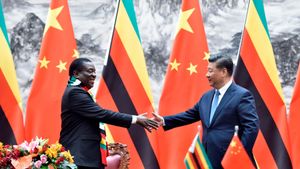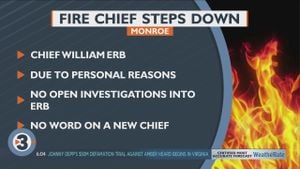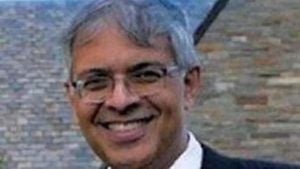NASA is currently facing significant challenges with astronauts Butch Wilmore and Suni Williams, who may remain aboard the International Space Station (ISS) longer than anticipated. Technical issues with Boeing's Starliner capsule have thrown their planned return to Earth, initially scheduled for just one week, off course.
The Starliner has encountered propulsion failures and helium leaks, leading NASA to reconsider the safety of the return flight. Officials are now exploring the possibility of having Wilmore and Williams return on the next SpaceX flight, which is set to remain at the ISS until February of next year.
Life aboard the ISS has become increasingly uncomfortable for the astronauts, as they now share the cramped space with nine instead of the usual six or seven people. Williams, for example, finds herself sharing a small sleeping quarters, and Wilmore has resorted to sleeping in a bag inside the Kibo module, operated by the Japanese space agency.
These extended stays have led to some practical difficulties, such as the astronauts having to stretch their clothes over time. Thankfully, the arrival of a resupply vehicle recently provided them with fresh garments, easing this concern.
Despite the inconveniences, both astronauts strive to maintain a positive outlook. Williams expressed their contentment, stating, "We're very happy here on the ISS," even if the uncertainty surrounding their return creates underlying tension.
NASA plans to assess more data before making any decisions about the Starliner’s fate sometime next week. This delay reflects the critical role of specific thrusters necessary for the capsule's de-orbit maneuvers, complicate the agency's planning.
Ken Bowersachs, NASA's space operations mission chief, emphasized the importance of careful analysis. He acknowledged, "We have time on our hands before we can bring Starliner home, and we want to use it wisely."
Navigational decisions have become complex due to opposition over dissenting opinions, reminding many of past NASA tragedies involving the Challenger and Columbia. Russ DeLoach, NASA's security chief, commented on the need for balanced deliberation, saying, "We don't have enough knowledge and data to make any kind of simple, black-and-white calculations."
NASA's transition to SpaceX might necessitate adjustments to their current flight operations. The crew for the upcoming shuttle flight, scheduled for late September, currently includes four astronauts who will need to accommodate Wilmore and Williams for their eventual return.
The ISS is limited to just two docking spots for American capsules, which means the Starliner must leave before the arrival of SpaceX’s Dragon capsule. Consequently, the decision hinges on whether the Starliner can safely return before the next scheduled mission.
Boeing has insisted on the safety of the Starliner, stating it completed several critical tests before the current crisis arose. NASA plans to keep the existing SpaceX team stationed until they can be replaced, barring emergencies during the interim period.
The current four crew members were due to return this month, but uncertainties surrounding the Starliner added months to their stay, pushing them to remain aboard until the end of September. While most missions typically last six months, some have extended to nearly 12 months.
Wilmore and Williams, both retired Navy captains with prior space experience, jumped right back to work aboard the ISS. They assist with various experiments and repairs, showcasing their expertise and adaptability.
"That's your job as astronauts," explained Joe Hayes, NASA’s chief astronaut, highlighting the mission's focus on tests and readiness. This current mission is, after all, classified as a test flight, aligning with the astronauts’ expectations of encountering some hurdles along the way.
NASA had enlisted both SpaceX and Boeing to ferry astronauts to the ISS following the retirement of the shuttle program back in 2011. SpaceX successfully completed its first crewed flight back in 2020, but Boeing's path has been fraught with delays and complications, leading to over $1 billion spent resolving issues after their initial uncrewed test flight.



